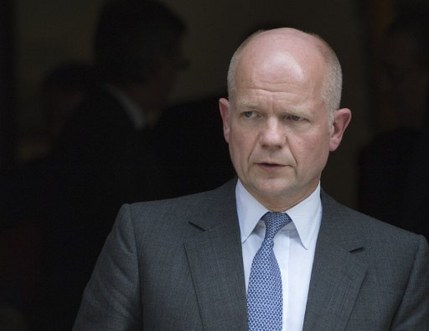Unlike the Middle East, which is frequented by senior officials from the United States government, when it comes to Africa, the US prefers to send its second-in-command. This is not new State Department protocol, however, as Congo’s 4 million deaths and Rwanda’s 800,000 deaths rarely received senior level treatment, and with Darfur only recently becoming a priority. In the case of the current conflict in Somalia, however, the US must rethink its second-rate treatment of Africa as it could play an important mediator role between the Transitional Federal Government (TFG) and the Islamic Courts Union (ICU).
Up to this point, the US has explicitly refused to do so. Instead, the Arab League has played the role of mediator. The League’s capacity, however, is in question. The first two rounds were unsuccessful in brokering a power-sharing agreement between the TFG and the ICU and the third round, originally scheduled to take place on Oct. 30, has been delayed. Additionally, the TFG voiced its disapproval of the Arab League as arbiter for the peace process, a complaint that undermines upcoming talks. While the Arab League should continue to liaise between the two parties, the League does not have the enforcement capacity to ensure a lasting settlement.
US involvement in Somalia has been painfully little of late due to the fact that the US believes the ICU has Al-Qaeda connections and prefers to ignore rather than engage such leaders. To her credit, Assistant Secretary for African Affairs Jendayi Frazer was in Nairobi recently as part of the International Contact Group on Somalia to discuss next steps vis-à-vis TFG-ICU relations. Attending the meeting were representatives, not senior leadership, from the TFG and the ICU – a reflection, perhaps of the less-than-engaged policy of the US.
As a neutral third party, US hands are unfortunately tied because of its allegiance to Ethiopia, a neighbor known to have troops in Somalia and suspected of preparing for an attack on Mogadishu. There is no question that Ethiopia troop presence undermines the peace process between the TFG and ICU. Having troops waiting in the wings poses a clear threat to the Khartoum negotiations as it keeps the ICU on the defensive. The US must call upon Ethiopia to withdraw troops immediately to ensure a safe space for negotiations.
The US-Ethiopian alliance, however, should not hinder US engagement. The longer the US stalls, the more time the ICU is afforded to expand their power, which could render the TFG almost irrelevant. Somali residents recognize that the ICU has been responsible for restoring order to a once-lawless Mogadishu controlled by US-backed warlords. Somalis also recognize that while the ICU may not be ideal, it is an undeniable improvement on the previous warlords. ICU enrollment continues, therefore, with unfettered success because no alternative exists and because the perceived enemy, Ethiopia, is encroaching on the ICU and its innocent Somali followers.
US engagement could undermine recruitment by taking the ICU leadership seriously, calling them to the table for talks, and proposing power-sharing policies that are good for the Somali people. If the ICU declines to engage in talks and ignores policymaking opportunities that are ultimately good for the Somali people, then the US serves a blow to public support for the ICU. In doing this, the US calls ICU’s bluff. But this will only happen through engagement, not isolation. Refusing to engage with the ICU will only increase recruitment efficacy. And further invasion by Ethiopian troops will send them fleeing to the only safe haven available – the ICU.
If the US is genuinely interested in preventing a crisis from emerging in the Horn, then Assistant Secretary Frazer must engage the TFG and the ICU at the highest levels. Furthermore, the US must pressure its ally Ethiopia to remove troops from Somalia as troop presence only raises the temperature of the talks and keeps the ICU suspicious.
Lastly, if the US wants to redeem itself from its second-rate treatment of Congo, Rwanda and most recently Darfur, then the State Department must appoint senior officials to broker peace agreements. African nations witness senior-level treatment of the Middle East and know that Africa gets relegated to assistant secretaries, deputies and second-in-command ambassadors. In the case of Somalia, this is good news for the TFG and the ICU as it allows them to continue apace with little worry of intervention. Therefore, the US must change its protocol without delay before an utter crisis blows the Horn. It is time for the senior leadership at State to engage Somalia.
Michael Shank is a Ph.D. student at George Mason University’s Institute for Conflict Analysis and Resolution. Khadija O. Ali, former member of the Somali Transitional National Parliament and a minister of state at the Transitional National Government from 2000 to 2002, is also a Ph.D. student at the Institute of Conflict Analysis and Resolution.

